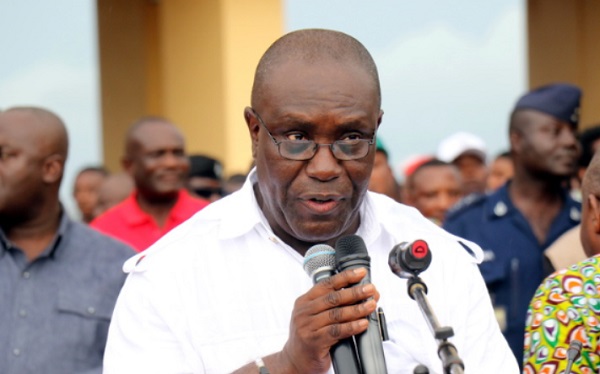The Trades Union Congress (TUC) has issued a seven-day ultimatum to the government, demanding the withdrawal of the imposition of Value Added Tax (VAT) on electricity consumption beyond the lifeline threshold.
The Secretary General of TUC, Dr. Yaw Baah stressed on the detrimental impact of this move on the livelihoods of ordinary Ghanaians, particularly pensioners and those with low incomes.
During a press conference on Tuesday, January 23, Dr. Baah emphasised that the impoverished population in the country cannot afford to bear the additional tax burden.
He called on the government and its agencies to promptly retract the implementation of the proposed tax.
“It’s always the poor people in this country, including pensioners, who bear the brunt. And we should not allow that to continue. Organised Labour, we have come together and our message to the government is very simple, we cannot pay VAT on electricity.
“We will not pay it today or tomorrow. Organised Labour is demanding the immediate withdrawal of the letter, and another directive from the Finance Minister to Ghana Grid Company (GRIDCo), ECG to stop the implementation of the VAT on electricity. We are giving the government, up to January 31, 2024, to withdraw the letter,” Dr Yaw Baah said.
He emphasised that they would take the necessary action if the Finance Minister does not instruct GRIDCo and ECG to retract the letter.
“If by that time the Minister of Finance fails to give directive to GRIDCO and ECG, we will advise ourselves,” he said.
In a letter dated January 1, Finance Minister Ken Ofori-Atta instructed the Electricity Company of Ghana (ECG) and the Northern Electricity Distribution Company (NEDCO) to implement the VAT, with the goal of generating revenue for the COVID-19 recovery programme.
The government has outlined the rationale for the imposition of a 15 percent VAT on electricity consumption.
This measure is part of the government's COVID-19 recovery programme, aiming to generate additional revenue.
Deputy Energy Minister Agyapa Mercer speaking in an interview with Citi FM on Monday, January 15, emphasised that while it was a challenging decision, it is necessary to settle debts owed to independent power producers.
“Obviously, if you look at the scope of the tax and what it is intended to do—raise revenue to meet some obligations of the government in the energy sector—it will interest you to know that, as we speak, as of July 2023, the amount of money that we owe to the IPPs alone is in the region of GH¢1.7 billion.
Latest Stories
-
CAFCC: “Dreams need to score early to unsettle Zamalek” – Former Zamalek striker Felix Aboagye
59 mins -
GHS launches mobile app to counter misinformation about vaccines
1 hour -
Election 2024: Care Ghana warns EC of recruiting political actors as Returning Officers
1 hour -
Mohammed Kudus gets 5th Premier League assist as West Ham hold Liverpool
1 hour -
Religious support source of my success – Asantehene
1 hour -
Sierra Leone energy minister resigns over electricity crisis, as power returns to capital
2 hours -
EC accuses Bright Simons, IMANI Africa of peddling falsehood
2 hours -
GRA/SML contract: Akufo-Addo has whitewashed the KPMG report – Inusah Fuseini
2 hours -
USM Alger receive warm welcome at Oujda Airport ahead of game against RS Berkane
3 hours -
2023/24 Ghana Hockey League to kick-off this weekend
3 hours -
All payments received from our contract with GRA are performance-based, says SML
4 hours -
Marrakech 2024: Ghana’s Zinabu Issah wins gold in women’s discus throw
4 hours -
Our contract with GRA followed due process; ignore contrary reports – SML
4 hours -
SML is just Agyapa in suit and tie – Bright Simons
4 hours -
Domelevo condemns selection of KPMG to audit GRA/SML contract as illegal and unprofessional
4 hours

